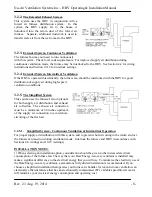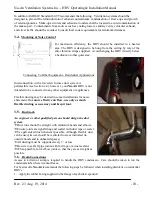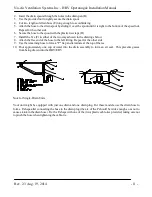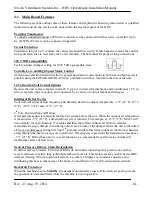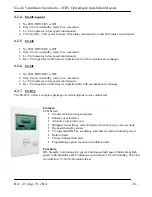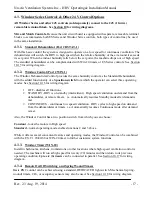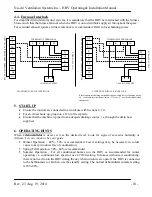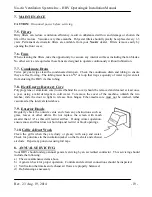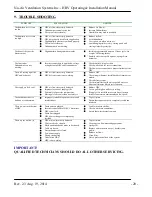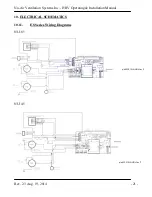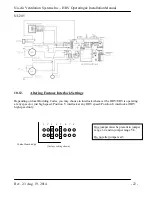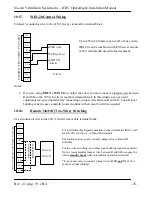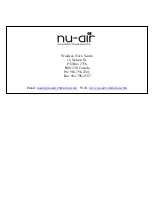
Nu-Air Ventilation Systems Inc. - HRV Operating & Installation Manual
Rev. 2.3 Aug. 19, 2014
- 19 -
7.
MAINTENANCE
CAUTION:
Disconnect power before servicing.
7.5.
Filters
Dirty filters can reduce ventilation efficiency, result in unbalanced airflow and damage or shorten the
life of the motors. Vacuum every three months. Polyester filters should typically be replaced every 1-3
years. Permanent electrostatic filters are available from your
Nu-Air
dealer. Filters remove easily by
opening the front cover.
7.6.
Fans
When cleaning the filters, take the opportunity to vacuum any interior surfaces including the fan blades.
No other service is required as these fans are designed to operate continuously without lubrication.
7.7.
Condensate Drain
Twice per year wipe clean the condensate drain pan. Check the condensate drain and tubing to ensure
they are free flowing. The tubing must have an "S" or loop that traps a quantity of water to prevent air
from entering the HRV via this tubing.
7.8.
Heat/Energy Recovery Core
Polypropylene or aluminum core (located behind the cover) should be removed and cleaned at least once
a year, using a mild detergent in cold water. To remove the cover of the machine, unlatch the two
latches; slide the door to right to release from hinges. Fiber-media core must not be washed, rather
vacuumed at the interval stated above.
7.9.
Exterior Hoods
Regularly check the outside vents and clean any obstructions such as
grass, leaves or other debris. Do not replace the screen with mesh
smaller than 1/4" as this will restrict airflow. During winter operation,
ensure snow and frost does not build up and restrict or block openings.
7.10.
Grills & Duct Work
Clean the grills when they are dusty or greasy with soap and water.
Check for punctures in the insulation jacket on the fresh air and exhaust
air ducts. Repair any punctures using foil tape.
8.
ANNUAL SERVICING:
Your HRV should undergo annual general servicing by an accredited contractor. This servicing should
include the following:
a)
The six maintenance items above.
b)
A general check for proper operation. Controls and electrical connections should be inspected.
c)
Verification that intake and exhaust air flows are properly balanced.
d)
Re-balancing as necessary.




